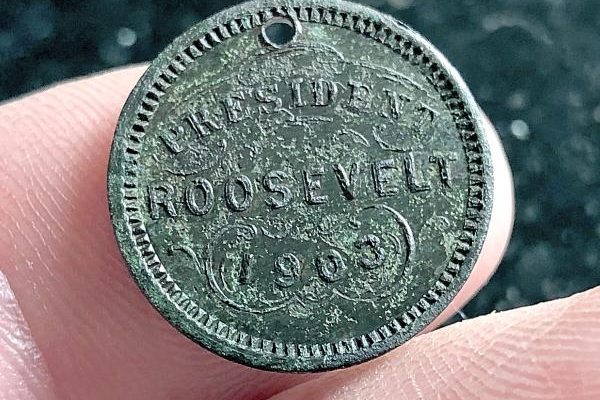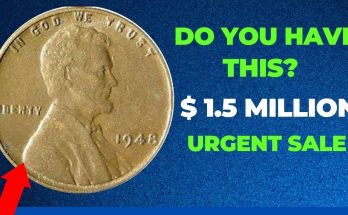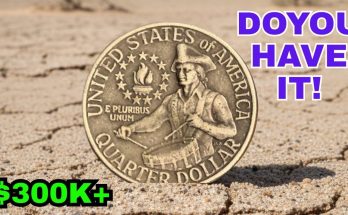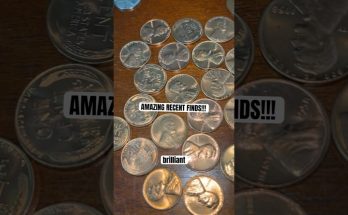
Coins and tokens have been used for more than 2600 years. Those that are found metal detecting can be a challenge getting cleaned. Different coin and token metals require different methods to clean. Doing it right will retain their value; doing it wrong could make them lose value. The coin cleaning tips that Jason Flicker, a local Southern California Detectorist, has shared with me, work better than other methods I have used in the past.
Jason Flicker is a seasoned detectorist. He has found over 2100 Silver Coins and 9,721 Wheaties in 10 years of searching. The oldest coin he has found was an 1814 Large Cent. Because of his trusted experience, I interviewed Jason for this article to get his latest advice.






I understand there are some detectorists who think you should never clean dug coins, if that is you, just skip to another article. However, for those who do, Jason shared his recommended methods that have worked for the older coins he has dug up.
When you’ve found a coin while out metal detecting, what are the first things you consider when determining whether or not to clean the coin and also what methods to use if cleaning the coin is the decision made?
“I always think that once a coin has been in the ground for years, most of the collector’s value is lost but that is not always the case. Some people carry a little spray bottle with water in it and I even have a friend who will put the coin in his mouth to get the dirt off. Normally, I just give it a gentle wipe and if needed wait until I get home to rinse it off with water. I carry a small plastic box for my older coins. You could also wrap them in tissue or put foam in the container if you want to.”
What is the best way to clean older silver coins?
“The best way is to just rinse the coin with water but if the coin is oxidized and grey that might not be the solution you are looking for. At this point, you have determined that the coin has too much environmental damage and just want a nicer-looking coin and not worried about its numismatic value.
For lightly oxidized coins, I soak in lemon juice for a few minutes or just get the coin wet. Then in the palm of my hand, I make a thick paste with baking soda and water. Then I use that paste to clean the coin.
If the coin is really oxidized, I use what I call the foil method. I get the coin wet by soaking in lemon juice for a few minutes or just getting it wet with water. Then I take a small piece of foil and fold it in half with the shiny side on the foil folded in. Then take the wet coin and put it between the foil and press it together with your finger. You will hear a sizzle and the foil gets hot. Do not leave in the foil for more than a few seconds or the foil will melt onto the coin. Remove the coin and use the baking soda paste to clean the coin. Repeat as many times as necessary.”
What is the best way to clean copper coins and tokens?
“Copper Coins: I messed up a lot of wheat pennies by trying methods like soaking them in ketchup, vinegar, tumbling, and other methods but have found these as the best ways to clean them. The best is to just rinse in water and maybe use a soft toothbrush. If that doesn’t achieve the look then there are a couple more options. The first would be to use a baking soda paste-like method mentioned for cleaning silver. Toothpicks are good for small crevices but break easy so I like to use bamboo skewers like the ones for kebabs to pick dirt and grime off the coin.
Another method that works well is to put a little peroxide into a small glass bowl and microwave it until it starts bubbling. Remove the glass bowl and immediately drop the coin into the boiling peroxide. You will see the peroxide bubbling on the coin just like you would when you put peroxide on a cut or wound. Leave it in the peroxide for a few minutes and carefully remove the coin so you don’t burn yourself. You can then either repeat the process to get more dirt off the coin or clean the coin with a baking soda paste. Tumbling can work too but you will lose the patina and I’m not a big fan of that method for old coins.”
What is the best way to clean aluminum coins and tokens?
“For aluminum coins and tokens, I like to soak the coin in lemon juice for an hour or more depending on how bad the coin or token is. Then I use a baking soda paste to clean them. I repeat the process if needed.”
For copper coins that have only 25% nickel, should they be cleaned differently than coins that are 100% copper?
“For any of the nickels and the 3 cent nickels, I would use the same method described below. They are all made up of the same metal composition. I have never found a Fatty Indian head penny but if I did I would start with using the baking soda paste to clean it. I wouldn’t use the peroxide method on those either. There might not be many solutions to clean those great from what I’ve seen. These were just ways I have found effective like the steel wool/SOS pads because the coins are already toasted. If people are fine with how a coin looks after soap and water then they can stop there. Some like putting nickels in ketchup but they look pitted and ugly after that. SOS pads won’t scratch the nickels because the steel is softer, they just remove the corrosion.”
What is the best way to clean nickels?
“Nickels can be tricky. Sometimes I leave them as is and just use soap and water. If they are really bad, I use an SOS pad to clean them. The nickel is harder than the steel and I usually get good results that way. I would try this method on a nickel that doesn’t matter to see if you like the results. War nickels usually look pretty bad and are sometimes caked in the manganese that had leached out of the coin from years in the ground. For these, I soak them in lemon juice for sometimes up to a day and then clean with baking soda paste. Sometimes you have to repeat the process if they still don’t look good.”
What is the best way to clean brass coins and tokens?
“Same as with the copper coins and tokens.
I haven’t had any experience with these types of coins. If I found a 2 cent piece and wanted to clean it I would start with baking soda paste. If coins have bronze disease or verdigris there might not be much that can be done to clean those coins. I have found a bunch of wheat pennies with this and no amount of cleaning with remove verdigris from the coin.”
In your opinion, when do you feel it is good to keep the coins patina or clean it off?
“I prefer to keep the patina on copper coins. For nickels and silver, it just depends on what the coin looks like. I think it is mostly up to the individual and what he or she likes. You can always experiment with some of these methods on modern copper coins or those ugly oxidized silver coins and see what you like the best.”
Do you have any final thoughts on cleaning older coins dug up from metal detecting?
“Don’t listen to people on whether or not coins should be cleaned. At the end of the day, it is your coin and people will have a variety of opinions. Do what you would like with the coins. Remember, these are dug coins and the majority of the time have lost most collectors value. I have found a few key date coins like a 1923-s Standing Liberty quarter with fine details that would sell in a coin shop for around $600. The problem was mine was found in a field, bent by a plow, and super oxidized. I ended up straightening the coin and cleaning it so I would be happy with it. It lost all of its collectors value with the environmental damage. Another example was an 1896-s Barber Dime I found with VF details and that would sell for over $300. This coin looked amazing out of the ground with just a little pitting so I just cleaned it with soap and water. Do what you like is what I am getting at and enjoy your finds.”
I would like to thank Jason for his detailed answers on cleaning older coins and sharing some of his favorite coin finds. If you have other questions about cleaning coins, I suggest you join the Focus Speed Facebook Group. Jason and other active members routinely chime in on coin cleaning suggestions and other metal detecting advice.




